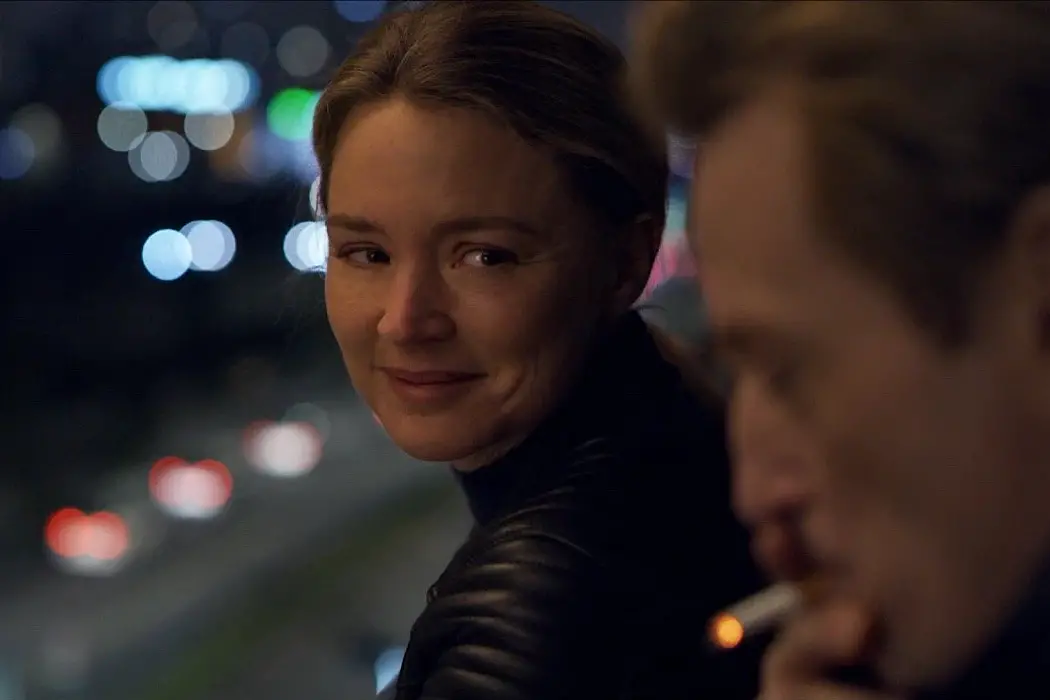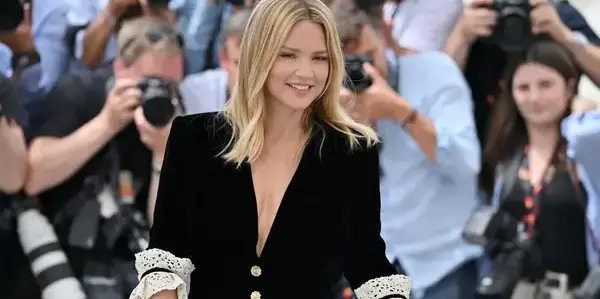Cannes Film Festival 2022: Alice Winocour’s PARIS MEMORIES is a Mature Study of Violence and Healing

Ryan Coleman is a writer and film critic from the…
Since her first feature Augustine premiered in 2012, I have been waiting for the French writer and director Alice Winocour to do something as interesting. That film follows a young female hysteric who becomes a test patient at the birth of the psychoanalytic revolution. It’s set in Belle Époque Paris—not the extravagantly lush vision of something like Bertrand Bonnello’s House of Tolerance, or the extravagant degradation of Albert Serra’s Liberté, but something more measured, and less experimental. More collaborative than combative with the narrative core; the aesthetics and the story flow into one another, interwoven and durable, rather than the film dramatizing the dissolution of form from content, a hole burning from the center toward the edges.
In other words, Winocour has been accused more than once of being boring, and I can’t say she’s not. 2015’s crime thriller Disorder featured a great Matthias Schoenarts performance but painted well within the expected lines for the genre. 2019’s Proxima is a visual marvel, and similarly features a strong Eva Green performance, but can essentially be boiled down to “women can go to space, too.”

Her latest, Paris Memories, premiered on the Director’s Fortnight of this year’s Cannes Film Festival. It was the final film I saw at the fest and in its quiet, assured way, was one of the most satisfying. Anchored by a superb performance from Virginie Efira, Paris Memories tells a richly layered story of one woman’s attempts to piece together a better life after an act of horrific violence leaves her in shatters.
A Violent Rupture
Efira plays Mia, a live translator of Russian for national French radio (the second Director’s Fortnight title to center on a translator, with Mia Hansen-Løve’s One Fine Morning). She lives in Paris, and is in a long-term relationship with Vincent, a doctor (Grégoire Colin). As is often the case with movie doctors, Vincent only ever has one foot at the moment; he’s constantly taking emergency calls that take him away from Mia.
This is the case on the night Mia will come to remember as “The Night” for the rest of her life. She and Vincent sit down for dinner at a charming French bistro and barely take a bite before Vincent is called off. Mia finishes alone and goes gliding on her motorcycle through the streets of Paris. She stops over for a nightcap at a bar near home to wait for a sudden downpour to pass.
There, she casts her journalist’s eyes and ears around—a young pair of Chinese friends take silly selfies with their bite-size skewers; a middle-aged couple fill out a postcard together over wine and clams; a handsome man (Benoît Magimel) locks eyes with Mia, but a server severs the cord when he brings a birthday cake down in front of him. Mia watches everything with warm regard, smiling faintly, and taking notes with a blue pen.
Eventually, Mia realizes that the pen has started to leak all over her hands. It’s on the way back from the bathroom that the shooting begins. At first, the shooter can’t be seen. But it’s clear the shots are coming from an automatic weapon. And they don’t stop.
Winocour directs the brief sequence with masterful restraint. Sensory details rip through the chaotic mise-en-scène—the icy crush of forearms fox crawling across broken glass, the hazy aura that erupts around the barrel of a gun every time it fires, flashing off in the periphery. Mia looks at once lost and alert, crouched and staring at nothing in particular as people are felled around her. She closes her eyes, and everything goes black.
Memory and Survival
It’s sometimes distracting, even counter-purposeful to go into this much detail when analyzing a film, let alone a single scene in a film. But Paris Memories, whose French title Revoir Paris more accurately translates to Seeing Paris Again, becomes an exploration of the relationship between trauma and memory. And the devil of trauma, which rides the backs of our worst memories, is all in the details.
Mia begins visiting the restaurant on Monday mornings. They close so that survivors of the attack can tour the place, scrounging for memories—where did I hide? who was with me?—and communing together about something no one else could understand. Some, like Thomas, remember everything. For Mia, it’s a complete blank.
Both are haunted in their own ways. Thomas spends his days laid up in a hospital with a splint on his leg, replaying the most traumatic night of his life again and again in his mind. Mia verges on dissociative collapse from the grief that comes from not being able to name the thing which has ruined her life, and the panic that comes from wondering whether someone died so that she could live.
A High Note for Winocour
It could all be a very miserable affair. The kind of film that people describe as “important,” but never good. Winocour-based Paris Memories on the real-life Bataclan shooting that took place in 2015. Winocour’s brother was caught up in that tragedy, and it’s the weight of that personal brush with the disaster that grounds the film in something substantial, a grounding that allows Winocour to experiment with surprising tonal arrangements.
Paris Memories moves along at the clip of a pulsing detective thriller and lingers on the palette with the sumptuousness of walking and talking urban idyll, a la Nicole Holofcener. It’s such a richly woven tapestry that the mind turns it around and over, examining and taking pleasure in each new thread and interconnection.

Mia begins to shed her old life like a butterfly, embracing the “diamond of tragedy” that Thomas describes to her in one of her low moments. It’s not that life on the radio and with Vincent was bad, but the profound new connections Mia is making with other survivors give her solace and purpose that comforts her more deeply than any of his half-hearted embraces could.
Mia’s attunement to life’s precious, minor moments—a crying child being comforted on the bus, squirrels frolicking in the park—becomes a grave weight around her neck in the aftermath of the shooting. But as she remembers the night more clearly with the help of new friends, the warmth reappears in Efira’s smile, and Paris becomes again a place to fall in love, rather than a place to fear. Paris Memories is a mature achievement for Winocour, whose sensitivity and eye for detail have made her a favorite of versatile, capable actresses in the full bloom of their powers.
Are you a fan of Virginie Efira? Let us know in the comments below!
Paris Memories premiered on May 25, 2022 in the Director’s Fortnight lineup of the Cannes Film Festival. Ryan Coleman is a member of the Unifrance Critics Lab.
Does content like this matter to you?
Become a Member and support film journalism. Unlock access to all of Film Inquiry`s great articles. Join a community of like-minded readers who are passionate about cinema - get access to our private members Network, give back to independent filmmakers, and more.
Ryan Coleman is a writer and film critic from the San Gabriel Valley. He is a member of the LA Press Club and the Managing Editor of Ampersand LA. His work can be found in the LA Review of Books, Little White Lies, Jumpcut, Rue Morgue, and more.













